One of the charms of traveling to India is enjoying the amount of movement that can be felt in its streets, and Bikaner was not going to be the exception. This city near the Thar Desert contains within it the ancient walled city.
Bikaner was founded in the 15th century by Rao Bika and is one of the most important cities in Rajasthan, but less touristy than neighboring Jodhpur or Jaisalmer. Famous for its palaces, the fort and the walled city, we spent a few days there when we arrived from Delhi by train. We tell you in our travel diary how our peculiar arrival in Bikaner was.
Bikaner contains within it the ancient walled city. Surrounded by a 7 km long wall built in the 18th century, this maze of streets, cows, crowded markets, havelis, etc. offers a range of colors, smells and sensations.
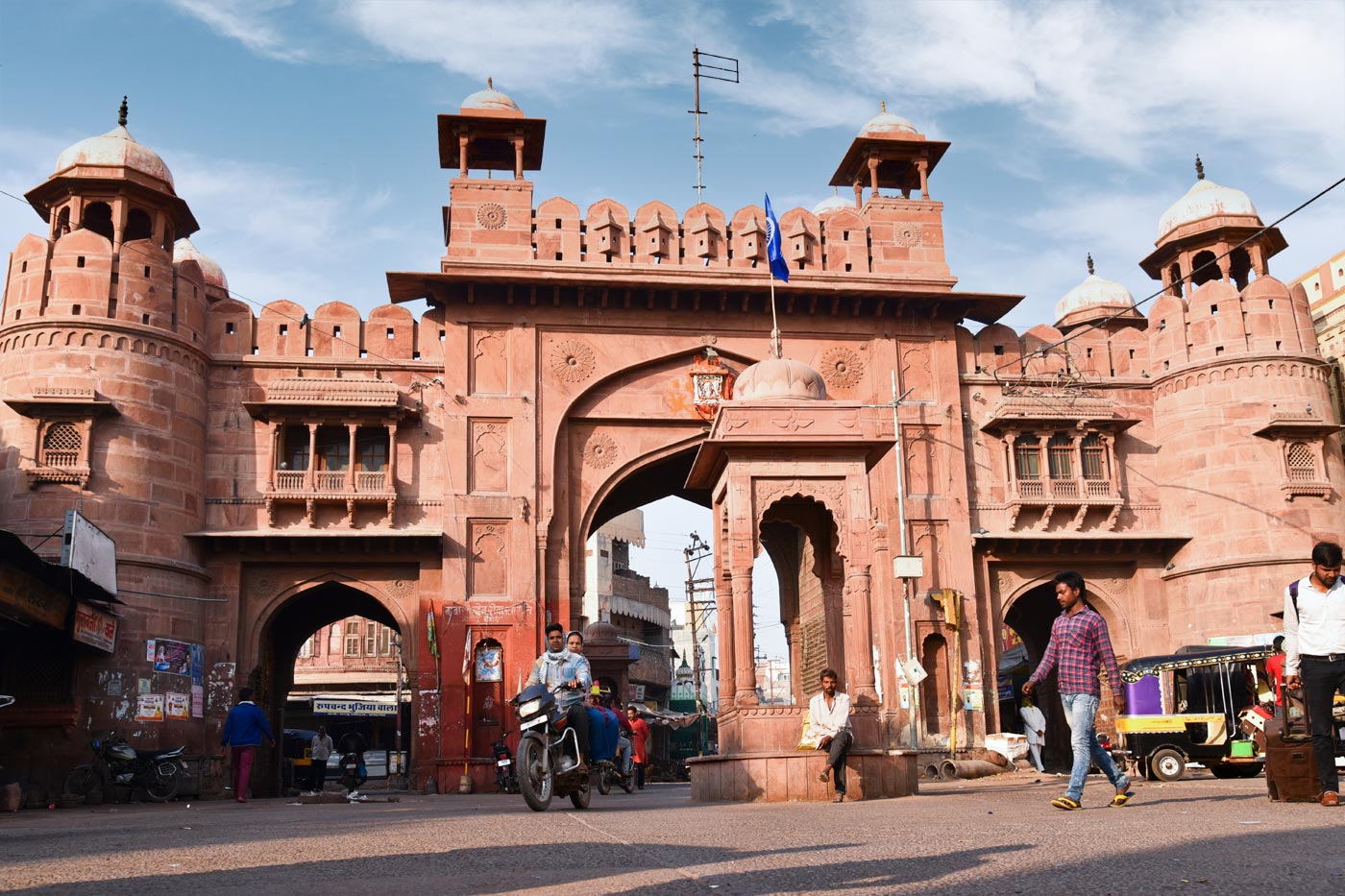
There are five entrances to the interior, with Kote Gate being the most important. At every corner you will find a stall with someone making the fabulous spiced milk tea, the quintessential drink of this city in the Thar Desert.
October to March is the best time to visit Bikaner. The pleasant winter months are the perfect time to explore the city as the weather is milder, with sunny days and wintry nights.
We know that the subject of visas can be somewhat confusing, especially for India, where obtaining one is an essential requirement for entry. In the article on how to obtain an Indian visa step by step (coming soon) you have information on how to apply for one online for up to 5 years.
It’s essential to travel to India with comprehensive insurance. We were among the first to offer the popular IATI discount, and you can now get it with Heymondo Travel Insurance as well.
You can find more information about both companies through the links provided above, or you can access the discount directly using the buttons below (in both cases, you’ll see the reduced final price on their website):
While many hotels, guesthouses, and restaurants in India offer free Wi-Fi, some travelers prefer or need a constant connection. We’ve included details on obtaining a eSIM India card with unlimited data (from Holafly) or with fixed data but cheaper (from Saily).
If you want to get it directly, here’s the link (with a discount) for both companies:
Getting to Bikaner by train is the most common and easiest way. It has connections with several cities in Rajasthan such as Jaisalmer or Jaipur. In our case, we arrived in a sleeper class from Delhi, with some tension, since we were on the waiting list to go from Delhi to Bikaner and we were not sure if we were going to get it.
We recommend that you bring warm clothing if you are going to sleep on the train, as it can get quite cold at night.
You can also buy a train ticket in one of the sleeper classes (3rd class), and here are some links to the most popular trains to get to Bikaner.
They say that the roads in the state of Rajasthan are in good condition. But be careful not to get caught in one of the famous desert sandstorms. From Jaipur, about 330 km away, it takes about 5 hours by car, and from Delhi, it is more than 8 hours.
Bikaner Airport was originally a military airport, but in 2014 the civilian part was inaugurated with a few flights from Delhi operated by Alliance Air and IndiGo. You can search for flight deals to Bikaner.
This impressive fort, on which the city of Bikaner grew, was initially built in the 16th century by Rao Bika, son of the founder of Jodhpur, and was named Chintamani. Later, Raja Rai Singh completed the construction of the present fort as it is known today.
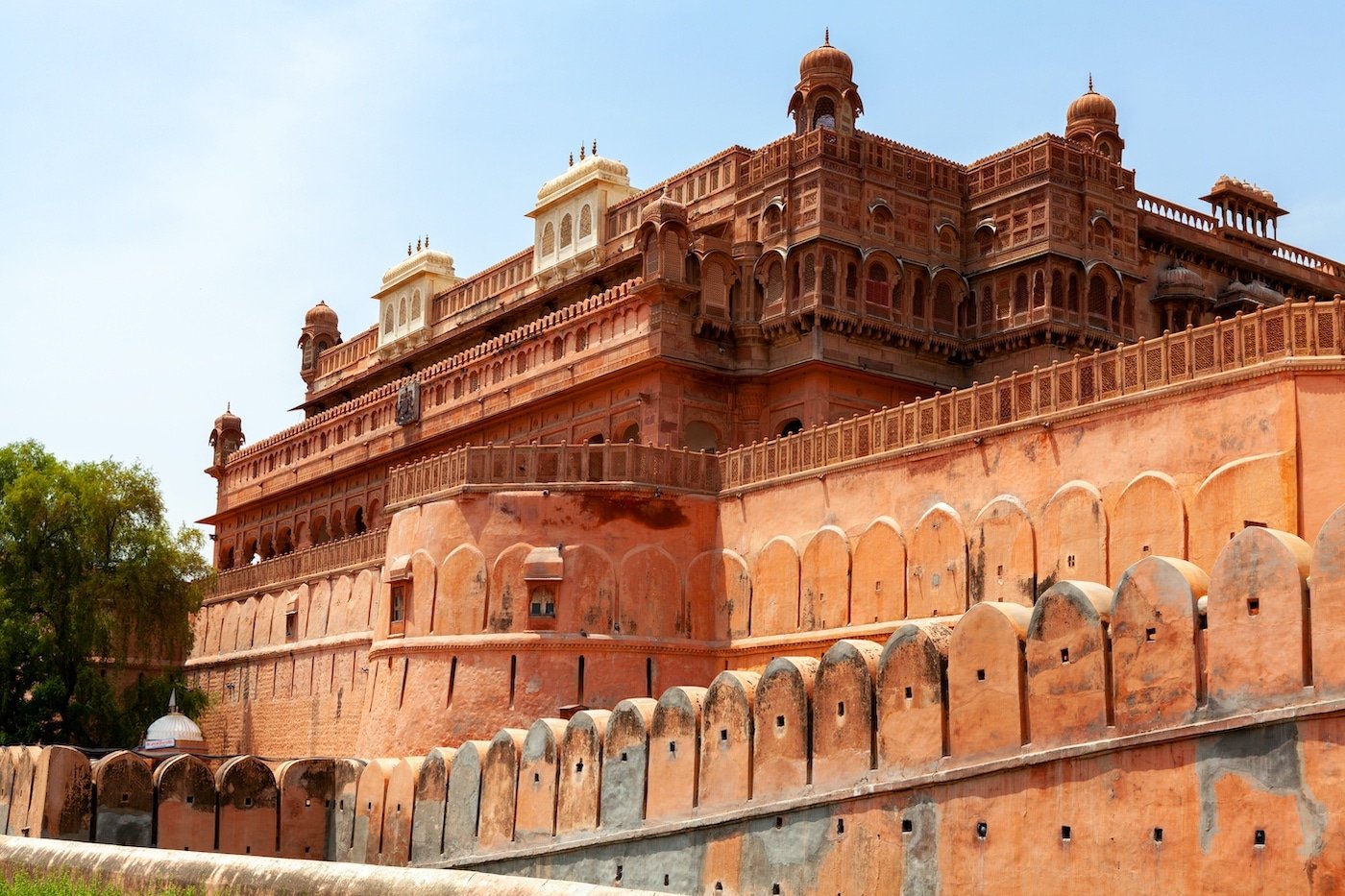
Inside Junagarh Fort, we will find an amalgam of gardens, palaces and temples in red sandstone, which open their doors in the form of a museum to learn about the history of the city and its rulers.
When you are told that there is a temple in India where, instead of water, 40,000 kg of ghee, a kind of butter, were used for its construction, it is normal for you to be a little surprised. The Jain temple of Bhandasar, or Jain Temple for short, was built in the 15th century by Bhandasa Oswal and is dedicated to the fifth tirthankara Sumatinatha.
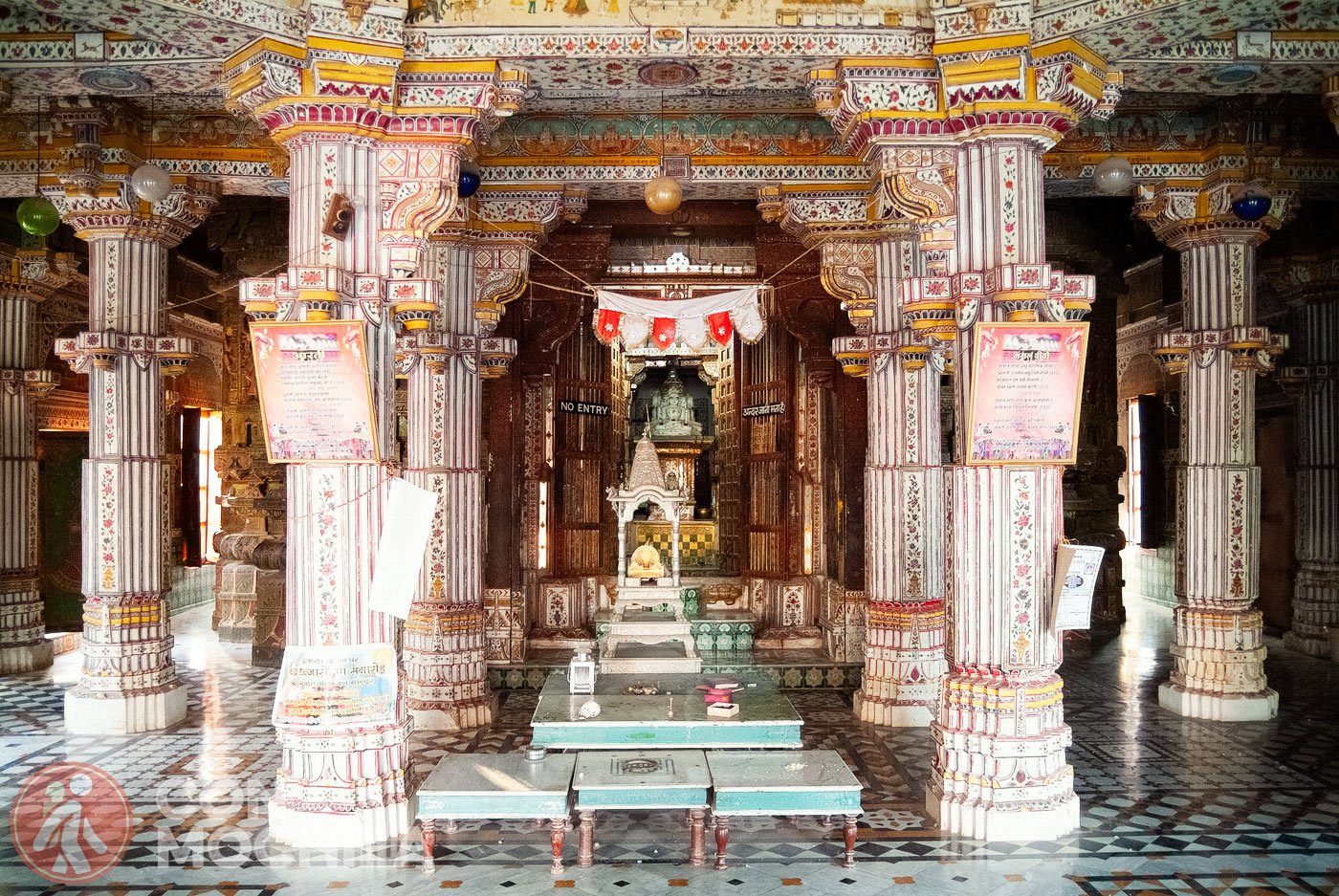
It is especially famous for its paintings, which show epic battles surrounded by floral motifs. It is worth taking a closer look at all of the details they represent.
Built in the 15th century by Balujee Chalva, in a mix of Mughal and Victorian styles, this grand red sandstone haveli greeted us after walking down a narrow street, dwarfing the rest and making the other small, old houses around it invisible.
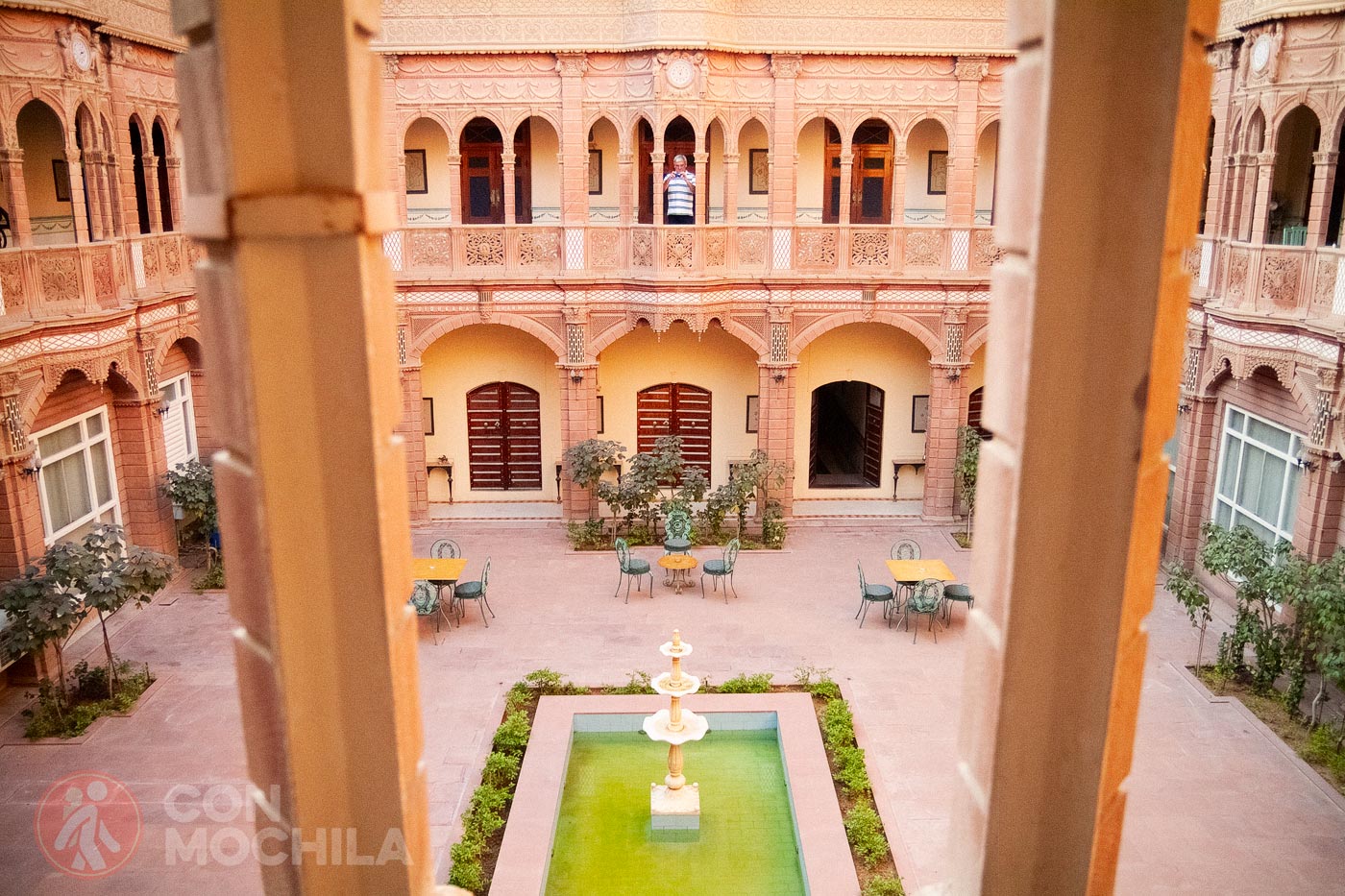
Today, Rampuria, or Rampuri Haveli, is occupied by the Bhanwar Hotel, with ostentatious decoration resulting from the taste of its various owners, starting with the wealthy merchant who ordered its construction, belonging to the Rampuria family.
About 30 minutes from Bikaner, Gajner Palace was built by Maharaja Ganga Singhji as a resting palace and hunting retreat in the early 20th century. Surrounded by extensive grounds and with thousands of migratory birds to spot, the palace faces a lake, a small oasis within the Thar Desert.
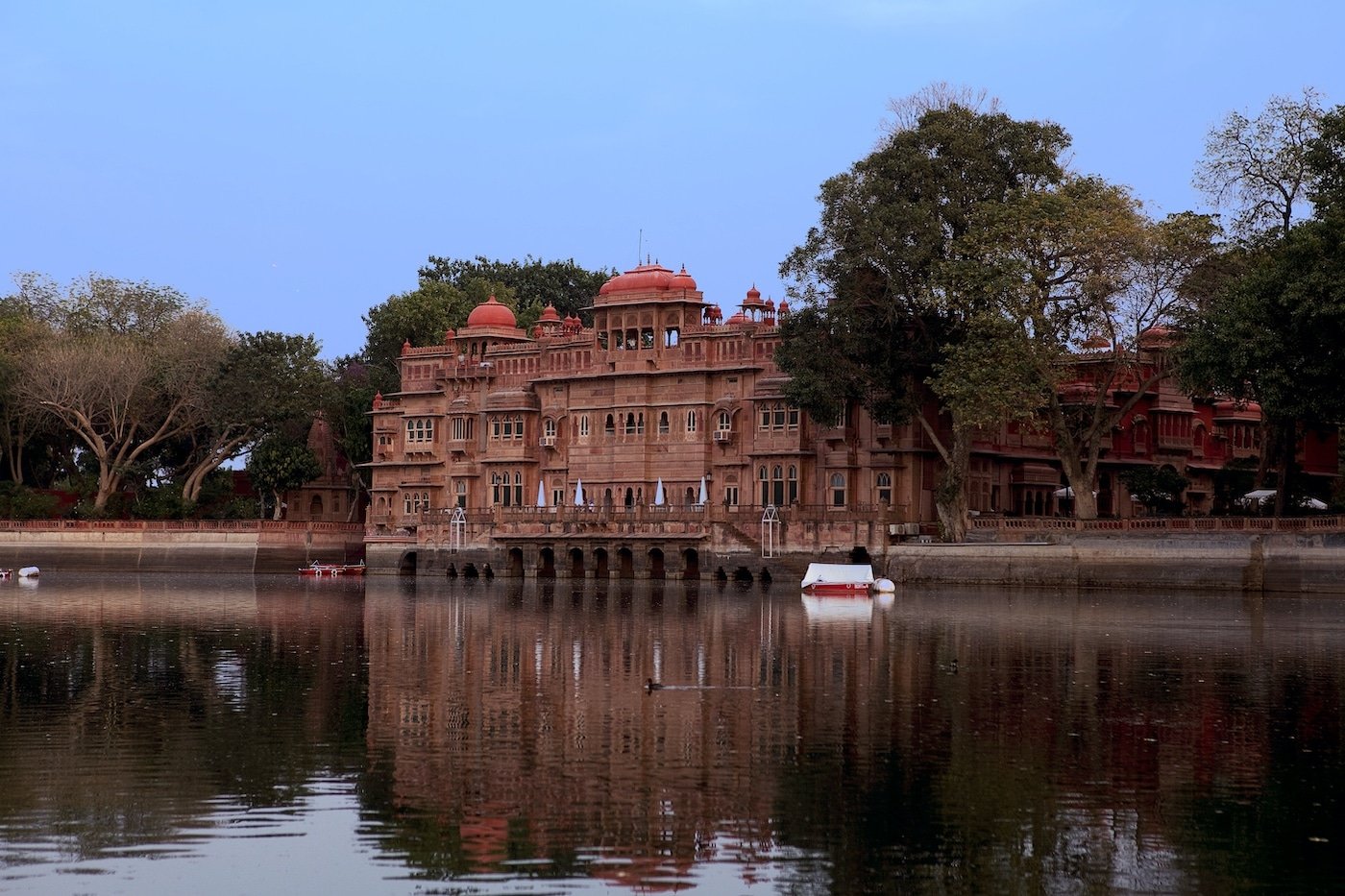
Today, it operates as a luxury hotel with 45 rooms, where the restaurant was a former ballroom of the Maharaja.
In 1920, almost 100 years ago, Maharaja Ganga Singhji asked architect Sir Samuel Swinton to design a palace that would reflect the splendor of the period. Built in Mughal and Rajput styles and featuring delicate carvings on its red sandstone exterior, its domes and balconies were carved by local artists.
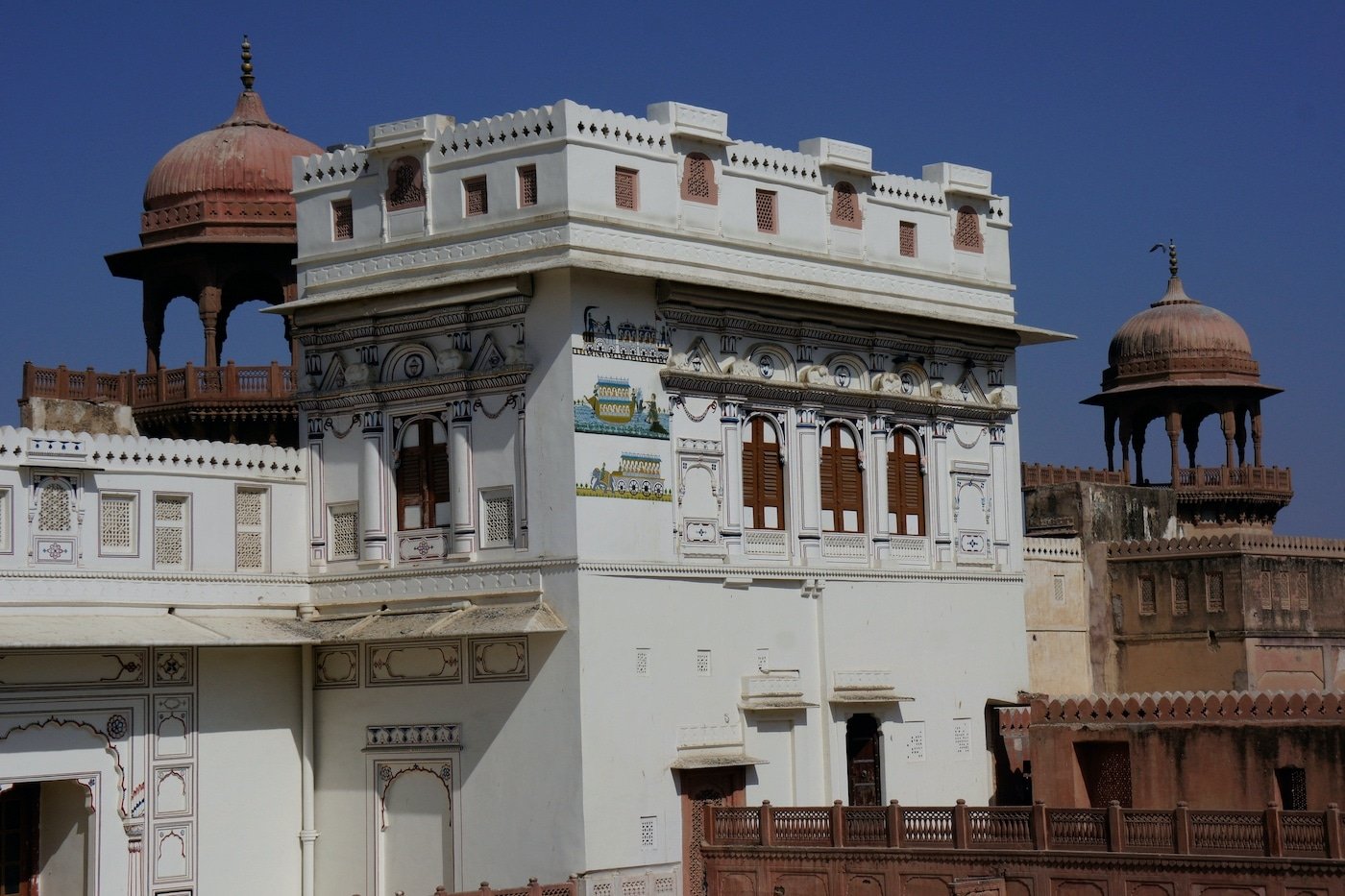
Today, like some of the palaces we mentioned, Lalgarh Palace functions as a luxury hotel, with almost 60 rooms in which you can surely relive a bit of that splendor we mentioned.
In the old walled city we find this market, it is called the Spice Market, but they usually sell everything. It is the most famous place to buy saffron at the best price (although you have to haggle), since it is then usually exported to other cities in India.
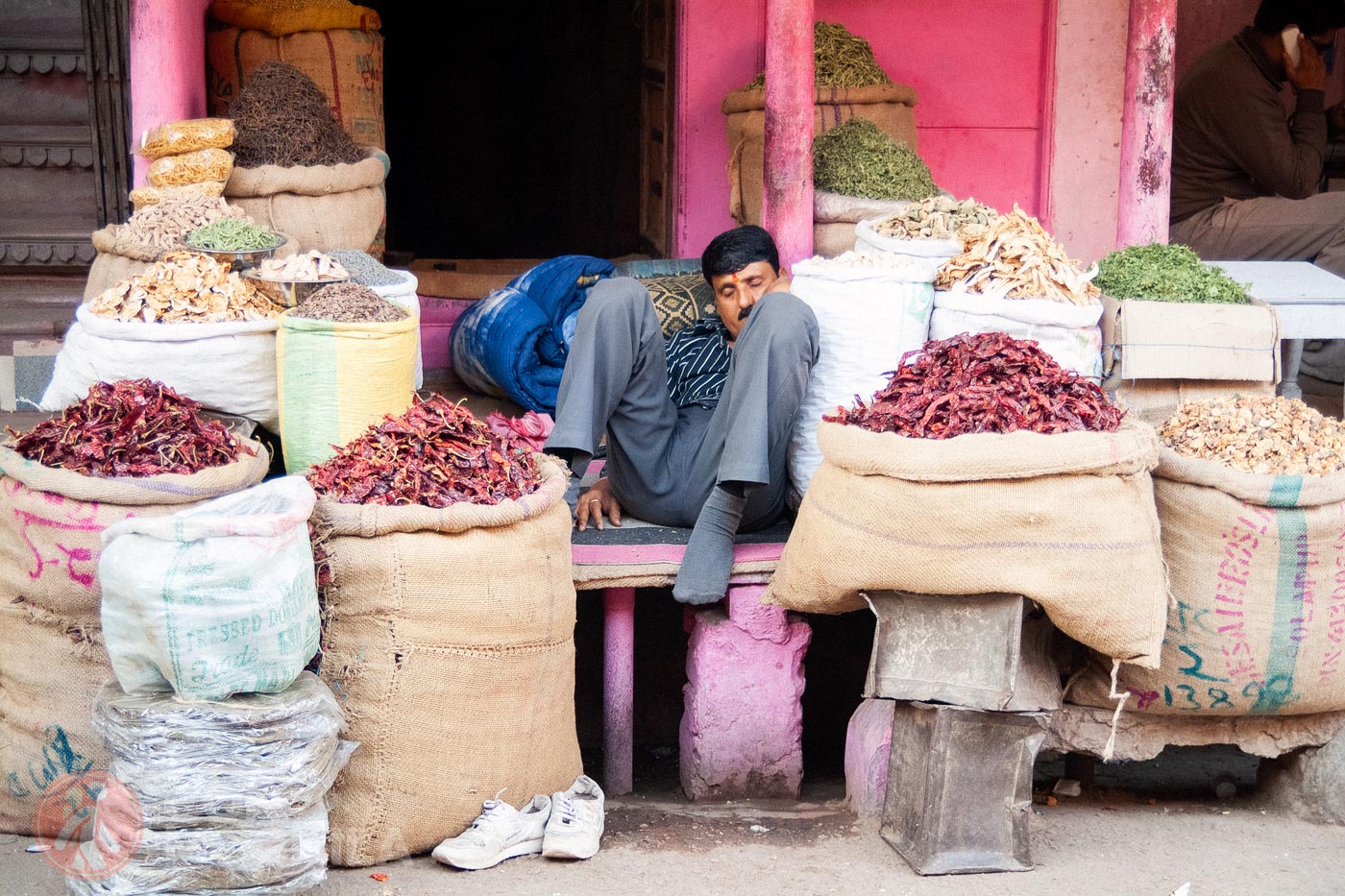
The kind of products sold at Bikaner’s spice market are divided into streets, so you often find the same products next to each other until you change sidewalks or turn down a backstreet.
Dedicated to Goddess Laxmi and Vishnu, Lakshminath Temple is one of the oldest temples in Bikaner, having been built in the 14th century by order of Maharaja Rao Lunkaran. It is located about 3-4 km from Junagarh Fort, just behind Bhandasar Temple, and is a must-see on your visit to the city.
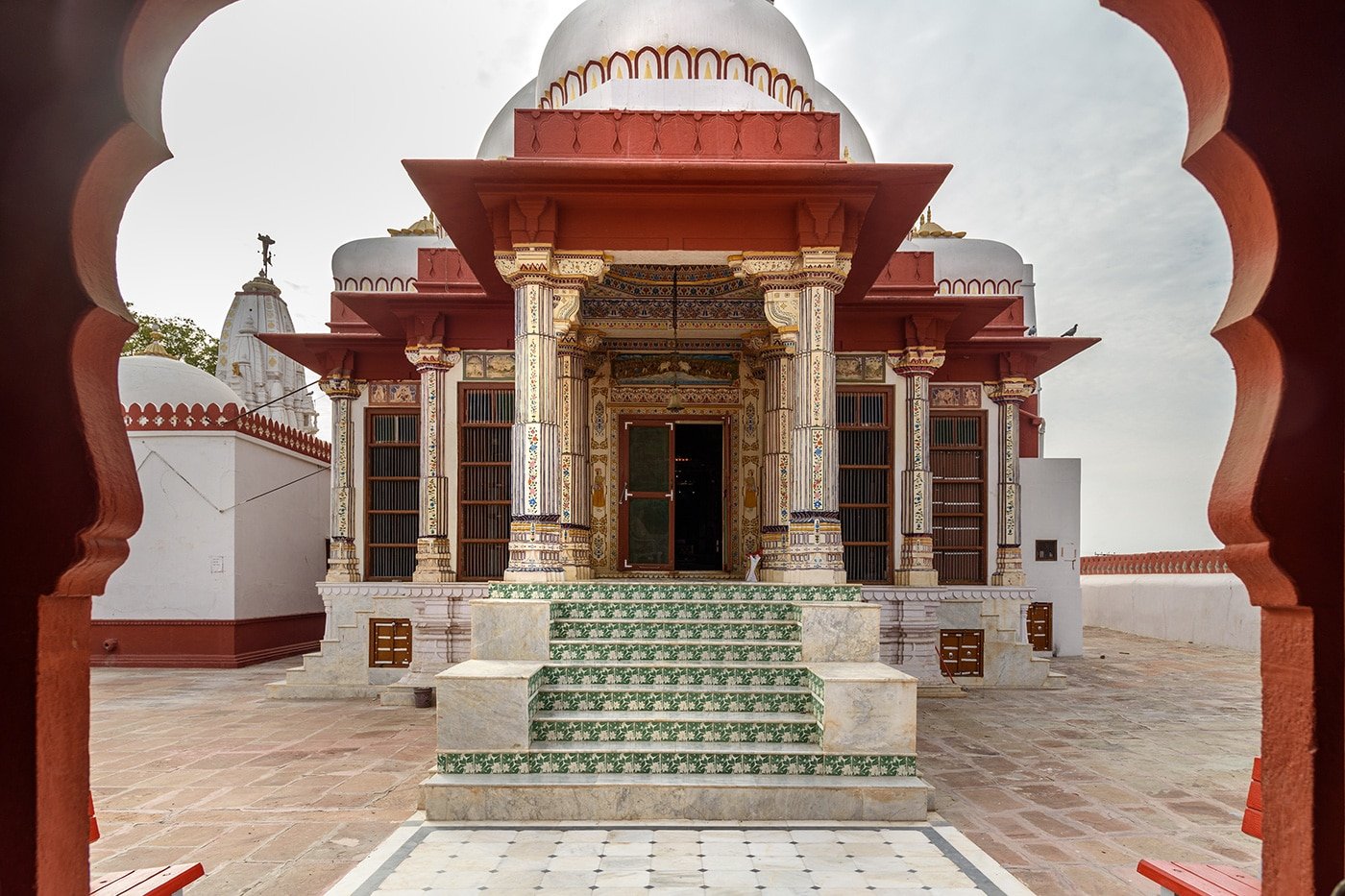
Its carvings in marble and red sandstone highlight the spirituality of the temple and, if possible, it is recommended to visit it during one of the festivals celebrated inside.
The city’s cultural center, the Prachina Museum, is housed in a tranquil garden area within Junagarh Fort (separate entrance fee required). Established nearly 20 years ago by Siddi Kumari, daughter of Maharaja Narendra Singhji, to preserve the city’s culture, it houses royal robes, artwork, furniture and artifacts.
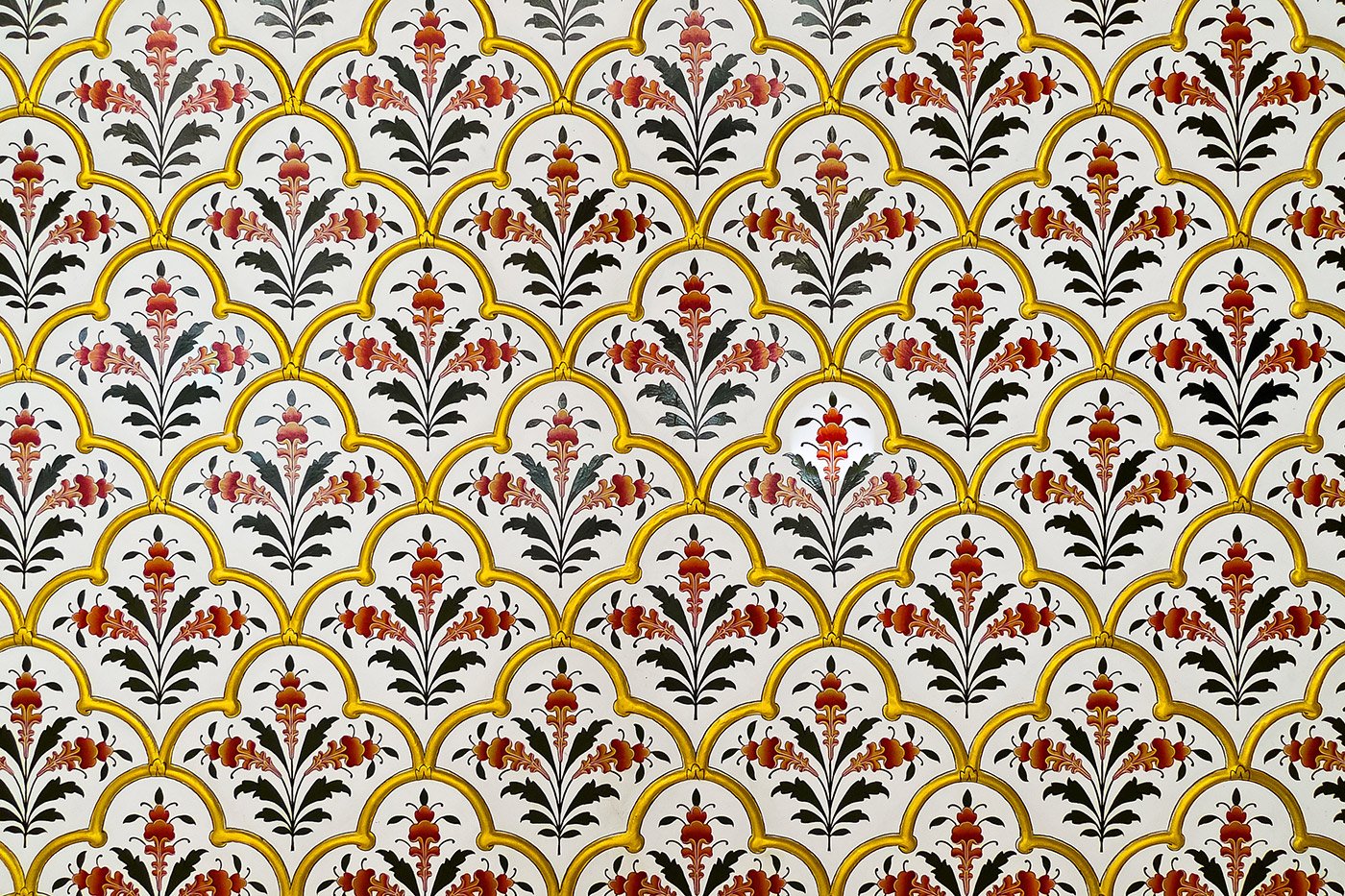
Some of its exhibitions are interesting, and we can always relax and have a chai in its café.
There are five entrances to the ancient walled city, but if we talk about the imposing Kote Gate, we are talking about the most important one. With beautiful carvings and minarets built in red sandstone, to one side, in the most modern part, we find a bazaar where we can get lost.
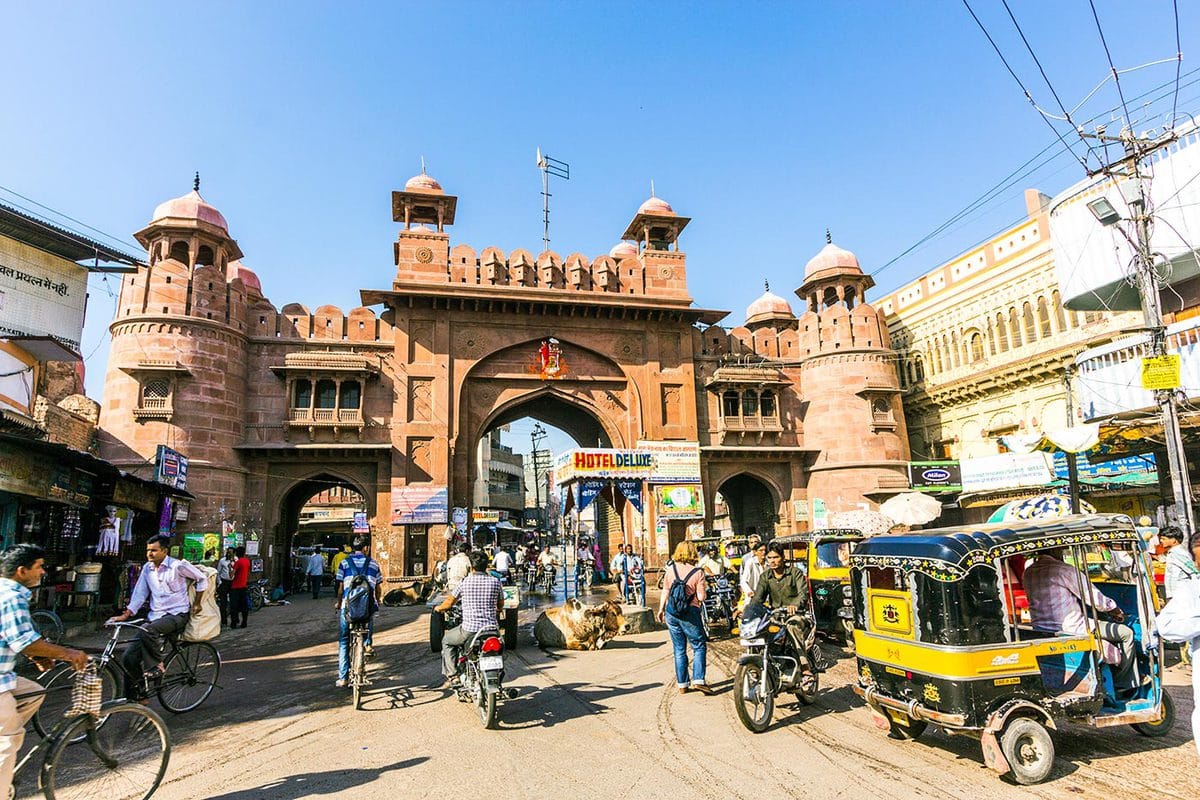
Once across, there are small alleys surrounded by havelis, restaurants and cafes where you can enjoy a good chai. Be careful with motorbikes though, as the streets are narrow, but they are not full of traffic.
The Thar Desert covers a large area of western Rajasthan and is home to 40% of the state’s population, making it one of the most populous states on the planet. However, around Bikaner you won’t find a typical sand desert, but rather an arid landscape with occasional isolated dunes.
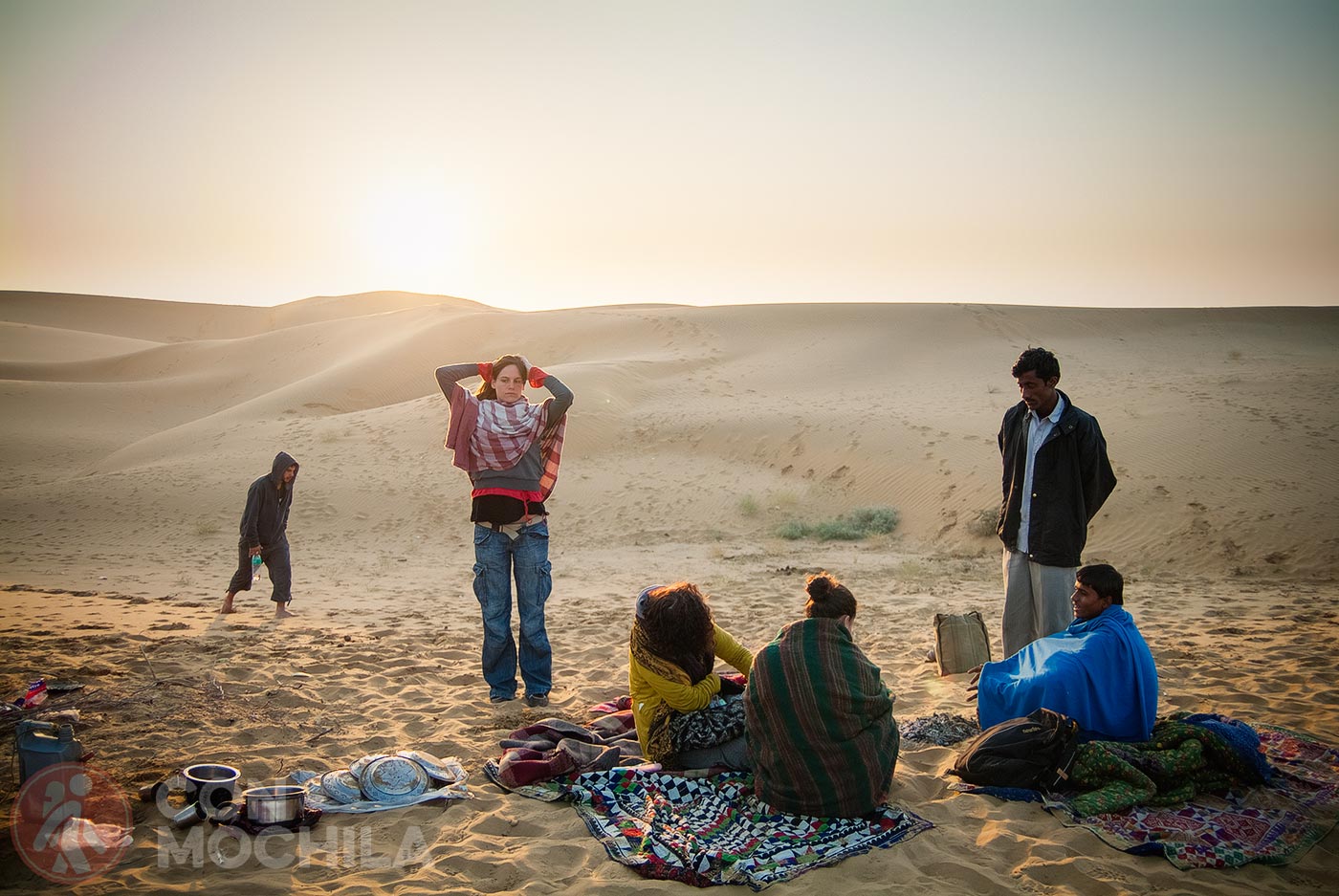
Antelopes, gazelles, foxes, snakes and lizards coexist in protected areas alongside nomadic shepherds and other settlements.
ATTENTION! If you are going on an excursion to the desert, read this FAADA article for more information.
A cenotaph is a tomb or memorial built in honor of a person. The royal cenotaphs of the rulers of Bikaner are located at Devi Kund Sagar, about 8 km from the city, where cremations were held in a white marble installation.
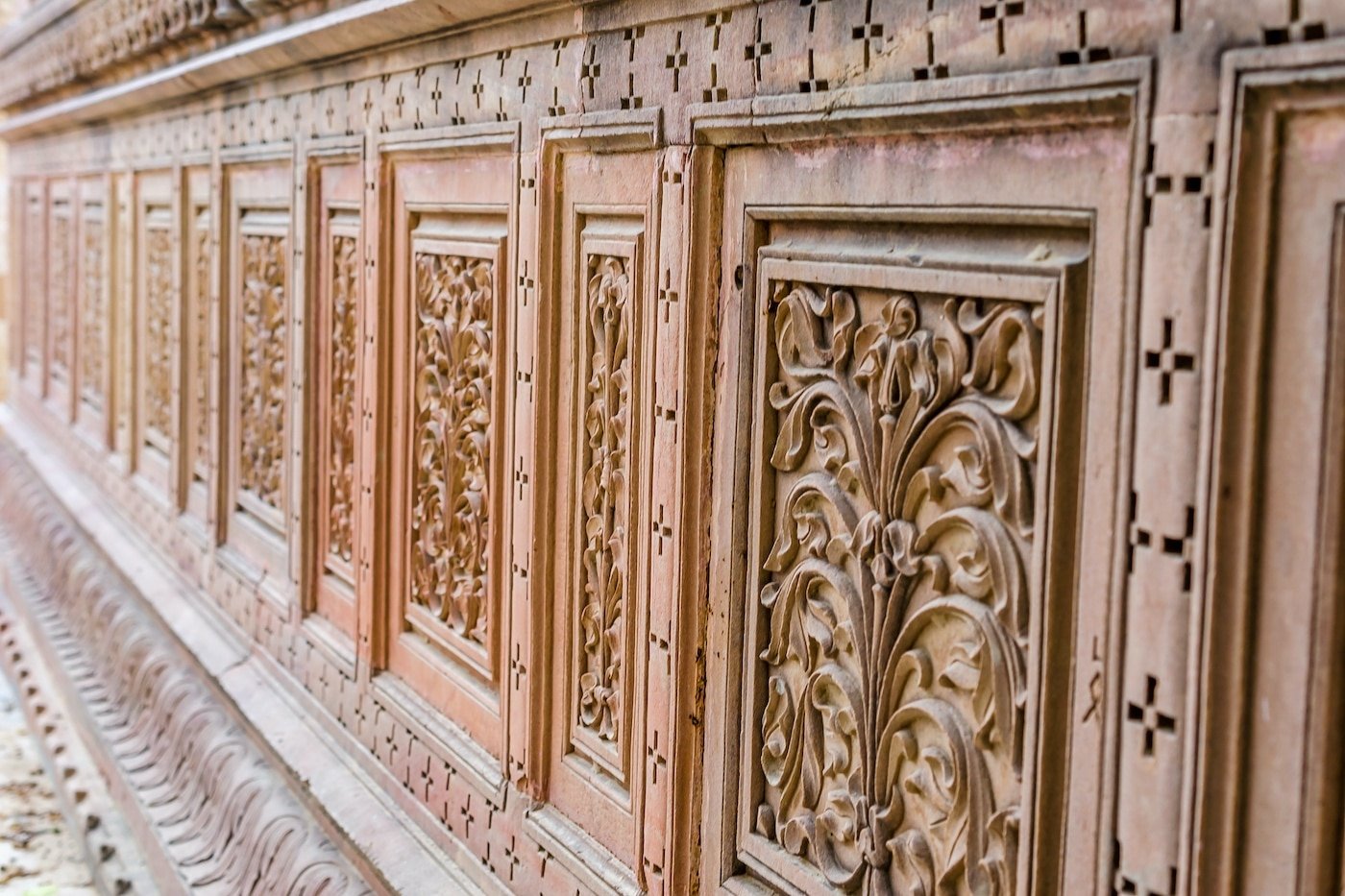
On either side of the cremation area are the cenotaphs, also called Chhatris, the oldest one dating back to the 16th century and the most modern, from the middle of the last century.
About 6 km from the center of Bikaner stands Shiv Bari Temple, also called Laleshwar Mahadev Temple, dedicated to Shiva. Built in red sandstone (like the vast majority of buildings in this area of Rajasthan) by the Maharaja Doongar Singhji. Inside we find an image of Shiva with Nandi.
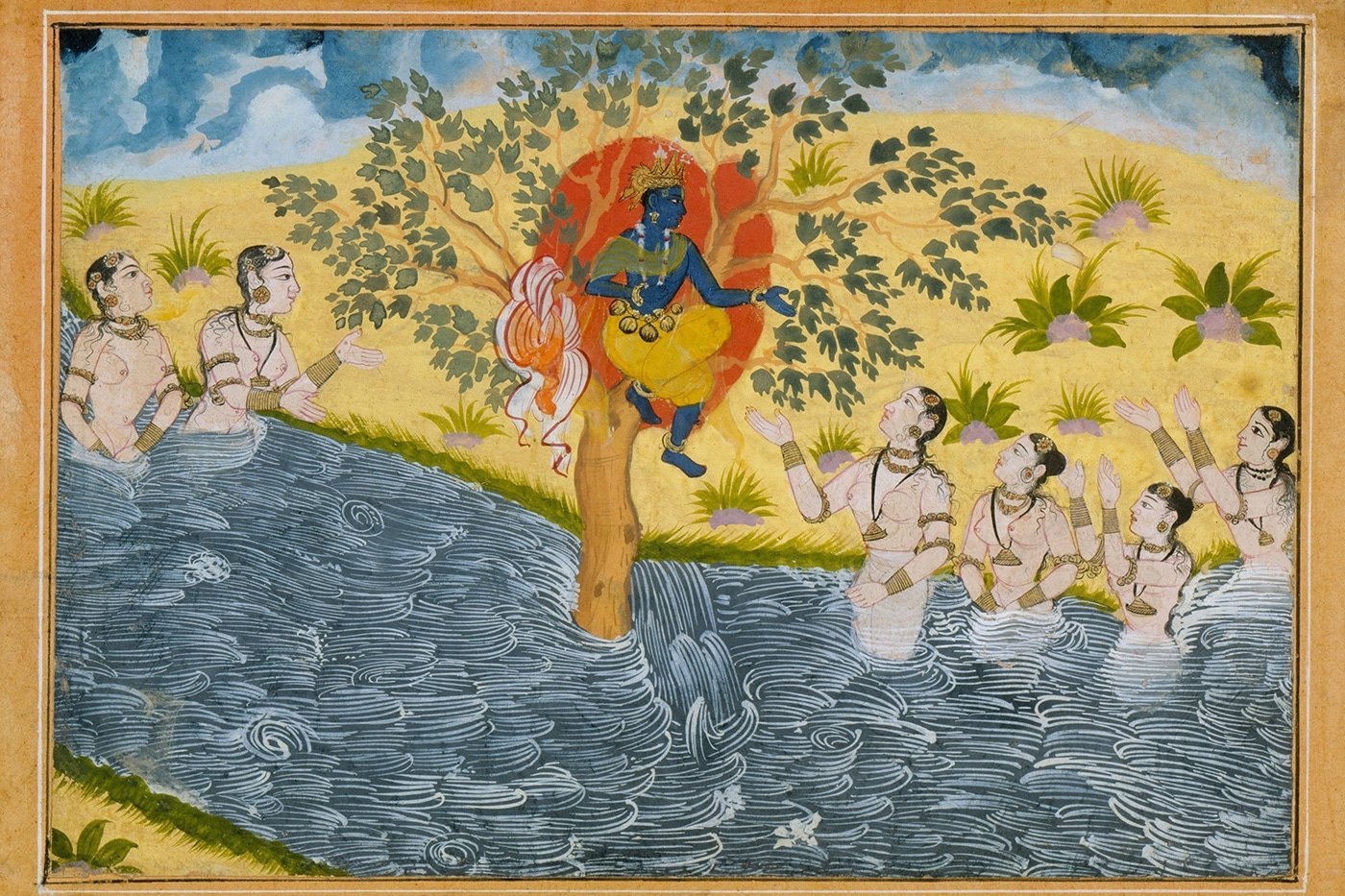
In the city of Deshnok, 30 km south of Bikaner, is the well-known, unique and peculiar Karni Mata Temple (or Temple of the Rats), famous for housing some 20,000 of these rodents that roam freely and have found in it the paradise that every animal could wish for.
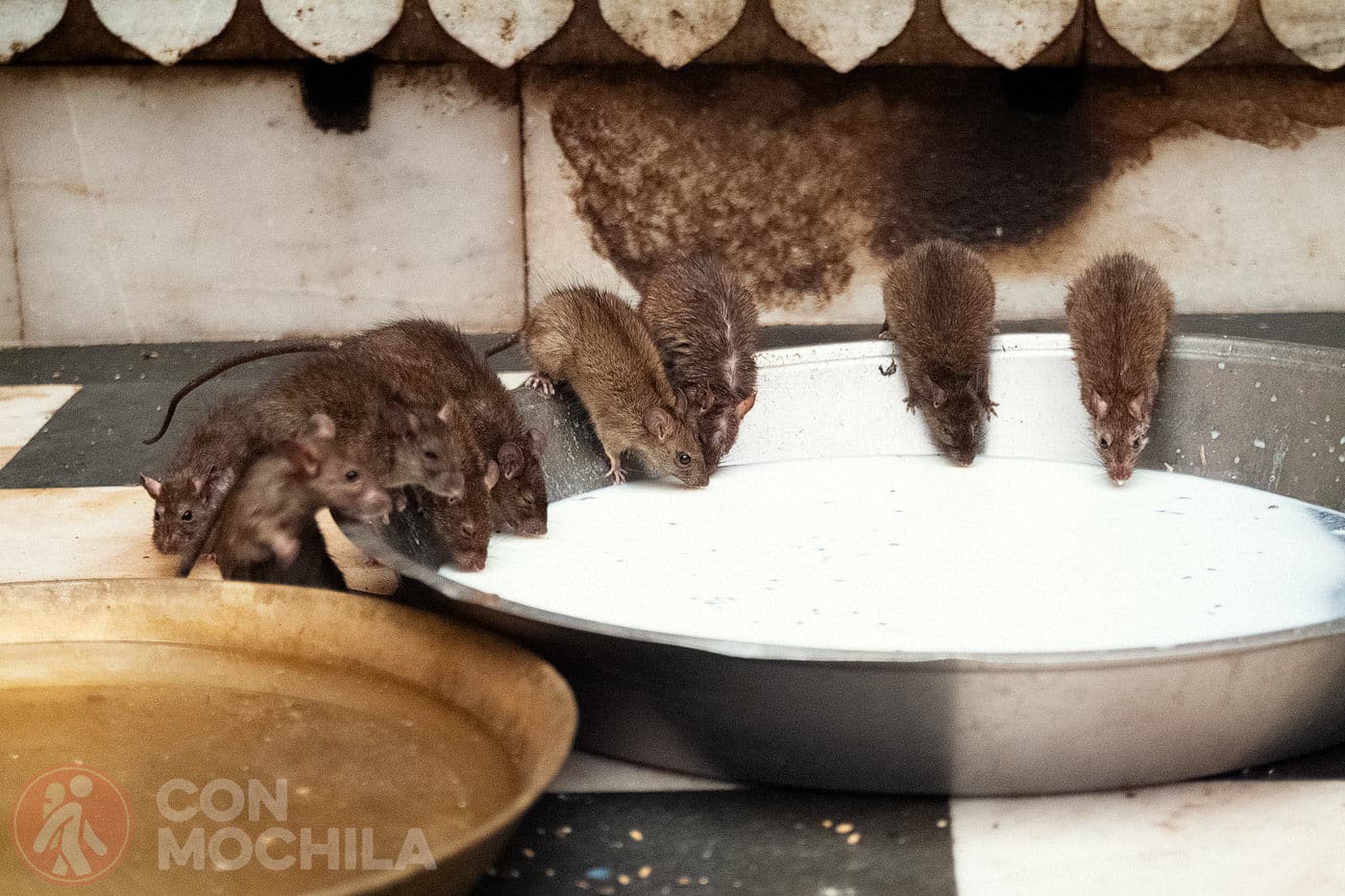
If you’re apprehensive, you might be a little disgusted, but we can tell you right away that it’s not that bad. Although the temple began to be built 600 years ago, it was not finished until the beginning of the 20th century and, as for its architecture, it stands out for its white marble entrance and silver doors.
Chander Niwas Guesthouse: Recommended by our guide Hussein, the now-named Sankhu Niwas was the place of choice for us to stay in Bikaner. It is located close to the Collector Residence and the Ganga Government Museum, just 1 km from the city, or 2 minutes by rickshaw. This guesthouse is a good place to relax and leave the hustle and bustle behind. It also has large rooms and a decent bathroom.
On the other hand, we leave you these recommendations:
Desert treks have become a very popular tourist activity, visiting some small villages along the way and sleeping rough in the dunes. Most of these tours offered in Jaisalmer are done by camel and, besides not being the most comfortable way to do it, not all companies treat their animals equally.
We recommend that you read this valuable information from FAADA before booking any tour.
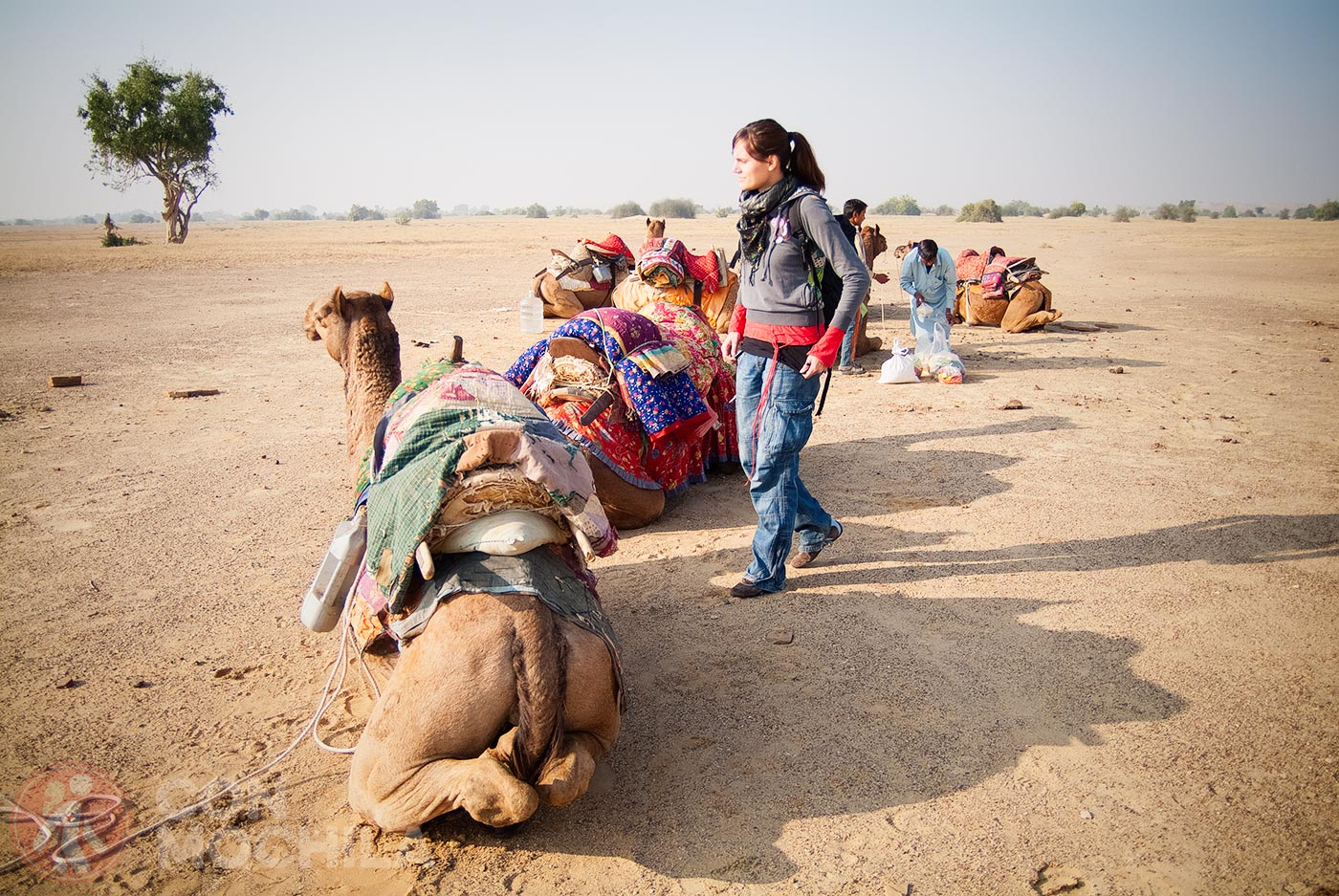
The easiest way to get around Bikaner is to walk to visit some of the most important points of the city, but be very careful with the traffic and the streets.
You can also rent a tuk-tuk or rickshaw with a driver and agree on a price to take you to places that are a little further away.
Click on the image and it will take you to a new Google Maps window with all the points of interest to travel around Bikaner.